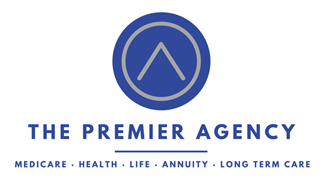Arizona’s dual special needs brokers encounter distinct challenges in addressing their clients’ complex needs. This article explores essential tools and technologies that help streamline processes and enhance client service. We will discuss budget-friendly software for managing substance abuse cases, language translation tools for effective communication, and risk assessment technologies. By utilizing these resources, brokers can improve their efficiency, ensure compliance, and better serve their diverse clientele in Arizona’s healthcare landscape.
Key Takeaways
- Specialized software helps Arizona brokers navigate complex Medicare policies and local regulations
- Technology integration improves efficiency and client service for dual special needs brokers
- Task management tools boost productivity when handling Medicare Advantage plans and health services
- Compliance tools are essential for navigating Medicare and Medicaid requirements and managing documentation
- Marketing tools help brokers expand their client base and create targeted campaigns
Leveraging Essential Tools for Dual Special Needs Brokers in Arizona
Dual special needs brokers in Arizona can enhance their services using specialized tools. These include software tailored for the state’s market, technology for daily operations, and task management tools for improved productivity. By leveraging these resources, brokers can better navigate Medicare complexities, ensure data accuracy, and promote health equity for their clients.
Understanding Specialized Software for Arizona’s Market
Dual special needs brokers in Arizona benefit from specialized software designed for the state’s unique Medicare landscape. These tools help brokers navigate complex Medicare Part D policies and stay updated on local laws. Some software offers incentive tracking features, ensuring brokers comply with regulations while maximizing their earnings. The right tool can streamline client management, policy comparisons, and enrollment processes, enhancing efficiency and accuracy:
- Policy comparison tools for Medicare Part D plans
- Incentive tracking systems
- Client management databases
- Enrollment software tailored to Arizona regulations
- Compliance monitoring tools for state-specific laws
Integrating Technology Into Daily Brokerage Operations
Integrating technology into their daily operations enhances efficiency and client service. They use telehealth platforms to connect clients with physicians, ensuring access to care despite poverty or geographic barriers. These brokers leverage information systems that comply with National Committee for Quality Assurance standards, maintaining high-quality data management. By adopting these technologies, brokers streamline their workflows and improve client outcomes:
- Telehealth platforms for remote client consultations
- Secure data management systems
- Digital tools for benefit explanation and comparison
- Automated reminder systems for client appointments and deadlines
- Mobile apps for on-the-go access to client information
Enhancing Productivity With Task Management Tools
Task management tools boost productivity when handling Medicare Advantage plans and health services for clients with developmental disabilities. These tools help brokers organize their workload, prioritize tasks, and track progress on applications for programs like Cigna’s Medicare plans. By streamlining their workflow, brokers can dedicate more time to assisting clients with complex health needs, including those requiring specialized nursing care.
Top Technology Solutions for Managing Dual Special Needs Clients

Using advanced technology can aid in managing clients effectively. Select suitable CRM systems, utilize EHR access tools, implement scheduling software, and employ data analytics. These solutions help brokers handle Medicare Advantage enrollment, Medicaid plans, and associated costs efficiently. By leveraging these tools, brokers can better serve their clients’ complex needs.
Selecting the Right Client Relationship Management (CRM) System
Dual special needs brokers in Arizona benefit from selecting the right CRM system to manage their clients effectively. These systems help track Medicare Advantage plans, chronic conditions, and appeals processes. A suitable CRM allows brokers to streamline marketing efforts, manage care coordination, and handle complex cases efficiently. Key features to look for include:
- Integration with managed care systems
- Customizable fields for chronic condition tracking
- Automated marketing tools for Medicare Advantage plans
- Appeals management functionality
- Secure client communication portals
Utilizing Electronic Health Record (EHR) Access Tools
Electronic Health Record (EHR) helps in accessing tools that manage client information efficiently. These tools allow brokers to securely view and update health records, facilitating better coordination with preferred provider organizations and the Arizona Health Care Cost Containment System. By leveraging EHR access, brokers can advocate for their clients more effectively, ensuring appropriate health insurance coverage and streamlining payment processes.
Implementing Scheduling Software for Appointments and Follow-Ups
Scheduling software aids in managing appointments and follow-ups efficiently. These tools help brokers track client income, comply with regulations, and conduct risk assessments. By using scheduling software, brokers can reduce hospital readmissions and improve data management. Key features of effective scheduling software include:
- Automated appointment reminders
- Income verification integration
- Regulatory compliance tracking
- Risk assessment scheduling
- Hospital readmission prevention alerts
- Data analytics for follow-up prioritization
Employing Data Analytics to Understand Client Needs
Dual special needs brokers in Arizona should employ data analytics to understand client needs better. These tools analyze healthcare data, helping brokers identify patterns in nursing home usage and caregiver support requirements. By leveraging technology to process complex datasets, brokers can tailor their services to meet the unique needs of clients in Indiana and beyond, ensuring more effective care coordination and resource allocation.
Compliance Tools Critical for Arizona’s Dual Special Needs Brokers

Compliance tools are vital for dual special needs brokers in Arizona. These tools help brokers navigate Medicare and Medicaid requirements, manage compliance, automate documentation, and stay updated on regulatory changes. By using these tools, brokers can efficiently serve patients, work with providers like Humana, and meet CMS standards while expanding their services to states like Oklahoma.
Navigating Medicare and Medicaid Requirements in Arizona
Dual special needs brokers in Arizona rely on advanced compliance tools to navigate complex Medicare and Medicaid requirements. These tools provide essential training on formulary changes, copayment structures, and Medicare supplement insurance options. By leveraging these resources, brokers can ensure they meet fide (fully integrated dual-eligible) program standards and offer accurate guidance to their clients, enhancing their ability to serve Arizona’s dual-eligible population effectively.
Utilizing Compliance Management Software
Utilizing compliance management software eases the process of navigating the complex landscape of Medicaid-managed care. These tools help brokers stay updated on regulatory changes in Nevada and other states, ensuring they maintain the necessary knowledge to serve their clients effectively. By using this software, brokers can track and resolve complaints, manage documentation, and streamline their compliance processes, ultimately improving their ability to assist dual-eligible individuals.
Automating Documentation and Reporting Processes
Dual special needs brokers in Arizona use automated documentation and reporting tools to streamline their processes. These tools help brokers efficiently conduct health risk assessments, manage insurance paperwork, and ensure accessibility for beneficiaries. By leveraging automation, brokers can quickly generate reports for organizations, improving their ability to serve clients effectively while maintaining compliance with regulatory requirements.
Staying Updated With Regulatory Changes Through Technology
Dual special needs brokers in Arizona use technology to stay updated with regulatory changes. They employ software that monitors zip code-specific regulations, prior authorization requirements, and drug formulary updates. These tools alert brokers to changes in community health management policies, ensuring they provide accurate guidance to clients while maintaining compliance.
Communication Technologies to Connect With Clients

Using communication technologies seamlessly connects with clients without the need to travel long distances. These tools include secure messaging platforms, video conferencing for virtual consultations, multilingual support technologies, and chatbots for immediate assistance. By leveraging these technologies, brokers can enhance quality assurance, comply with Social Security Act requirements, and improve client service across states like New Hampshire.
Adopting Secure Messaging Platforms for Confidential Communication
Dual special needs brokers adopt secure messaging platforms to ensure confidential communication with clients about Medicare Advantage plans, disability services, and education programs. These platforms allow brokers to safely discuss sensitive health information, including diabetes management and medication regimens, while complying with privacy regulations. By using encrypted messaging systems, brokers can provide timely assistance and address client concerns efficiently, enhancing the overall quality of care for individuals with complex health needs:
Scheduling Virtual Consultations With Video Conferencing Tools
Professionals now utilize video conferencing tools to schedule virtual consultations, enhancing their ability to serve clients with acute care needs. These platforms allow brokers to connect with health maintenance organizations and discuss complex health issues without risking discrimination. By leveraging video technology, brokers can efficiently coordinate care for clients with chronic diseases, ensuring they receive proper organization of services and support.
Enhancing Accessibility With Multilingual Support Technologies
Multilingual support technologies help brokers communicate effectively with clients who have mental health needs or speak languages other than English. By using translation software that complies with the Code of Federal Regulations, brokers can ensure clear understanding of contracts and stakeholder requirements. This approach improves service delivery and client satisfaction across diverse populations.
Implementing Chatbots for Immediate Assistance
Chatbots to provide immediate assistance to clients. These AI-powered tools help answer common questions about Medicare Advantage plans, prescription drug coverage, and eligibility requirements. Chatbots enable brokers to offer 24/7 support, reducing response times and improving client satisfaction.
Marketing Tools to Expand Your Client Base in Arizona

Dual special needs brokers in Arizona use marketing tools to expand their client base. These tools include digital advertising platforms, social media management software, marketing analytics, and design software for personalized materials. By leveraging these resources, brokers can reach target audiences, engage clients, track campaign performance, and create appealing marketing materials.
Utilizing Digital Advertising Platforms to Reach Target Audiences
Digital advertising platforms allow brokers to create targeted campaigns for Medicare beneficiaries, focusing on specific age groups, locations, and health conditions. By leveraging tools like Google Ads and Facebook Ads, brokers can increase their visibility among potential clients searching for Medicare Advantage plans or specialized healthcare services. This targeted approach helps brokers optimize their marketing budget and connect with individuals who are most likely to benefit from their services:
Leveraging Social Media Management Tools for Engagement
These professionals can leverage social media management tools to engage with potential clients effectively. These tools allow brokers to schedule posts, monitor engagement, and analyze performance across platforms like Facebook, Twitter, and LinkedIn. By using these tools, brokers can maintain a consistent online presence, share valuable information about Medicare and Medicaid programs, and respond promptly to inquiries from seniors and caregivers. Social media management tools help brokers:
- Schedule posts for optimal engagement times
- Track mentions and respond to client questions
- Analyze content performance to refine marketing strategies
- Manage multiple social media accounts efficiently
- Create targeted ad campaigns for specific demographics
Tracking Campaign Performance With Marketing Analytics
Dual special needs brokers in Arizona track campaign performance using marketing analytics tools. These tools provide insights into the effectiveness of their marketing efforts, allowing brokers to measure reach, engagement, and conversion rates. By analyzing data from various channels, brokers can identify which strategies resonate best with their target audience, enabling them to refine their approach and allocate resources more efficiently.
Creating Personalized Materials With Design Software
Dual special needs brokers in Arizona use design software to create personalized marketing materials. These tools enable brokers to produce customized brochures, flyers, and digital content that highlight specific Medicare Advantage plans and services. By tailoring materials to individual client needs, brokers can effectively communicate complex information about dual eligibility and coverage options, increasing engagement and conversions.
Training and Development Technologies for Arizona Brokers

Dual special needs brokers in Arizona use various training technologies to stay updated. These include online platforms for continuing education, webinars and virtual conferences, mobile apps for on-the-go learning, and social platforms for professional networking. These tools help brokers enhance their skills and knowledge to better serve their clients.
Accessing Online Platforms for Continuing Education
Access online platforms for continuing education to stay current with industry changes. These platforms offer courses on Medicare regulations, policy updates, and client service techniques. Brokers can complete required training at their own pace, ensuring they maintain their licenses and provide accurate information to clients.
Participating in Webinars and Virtual Conferences
Participate in webinars and virtual conferences to enhance their knowledge and skills. These online events provide opportunities to learn about new Medicare policies, industry trends, and best practices from experts in the field. Brokers can attend sessions on topics such as client communication strategies, regulatory compliance, and emerging technologies, all from the convenience of their office or home.
Utilizing Mobile Apps for Learning on the Go
Utilize mobile apps for learning on the go. These apps offer quick access to Medicare and Medicaid updates, allowing brokers to stay informed while traveling or between client meetings. Some apps provide interactive quizzes and short video lessons, enabling brokers to brush up on key topics during spare moments.
Connecting With Professional Networks Through Social Platforms
Connect with professional networks through social platforms to enhance their knowledge and skills. These platforms, such as LinkedIn and industry-specific forums, allow brokers to join groups focused on Medicare and Medicaid issues, share experiences, and learn from peers. By actively participating in these networks, brokers stay informed about industry trends, policy changes, and best practices, ultimately improving their ability to serve clients effectively:
Conclusion
Essential tools and technology empower dual special needs brokers in Arizona to streamline operations, enhance client service, and maintain compliance. From specialized software tailored to Arizona’s market to advanced communication technologies, these resources enable brokers to navigate complex Medicare and Medicaid requirements efficiently. Marketing tools and training platforms further support brokers in expanding their client base and staying updated with industry changes. By leveraging these technological solutions, brokers can provide more effective, personalized care to their clients, ultimately improving health outcomes for dual-eligible individuals in Arizona.


Recent Comments